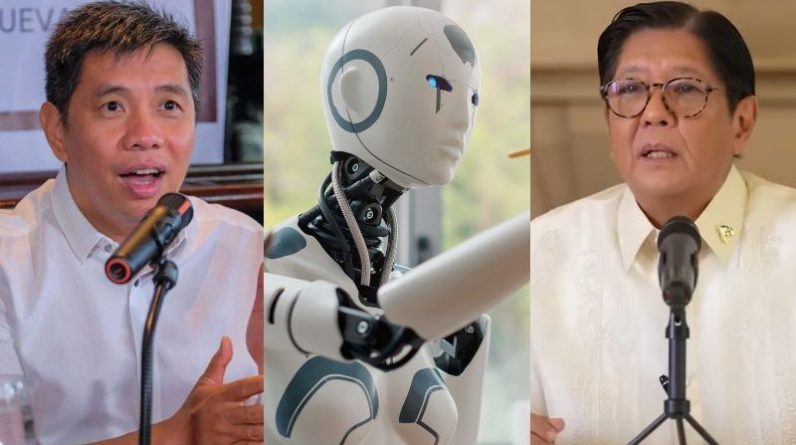
MANILA, Philippines — The Philippine government is setting up an AI Academy to help workers adapt to an economy where artificial intelligence is expected to shape most jobs in the next decade.
The academy will offer practical training tailored to industries such as finance, healthcare and emerging digital fields. Courses will cover AI integration, including roles such as AI specialists, prompt engineers and cybersecurity professionals.
Officials say it is meant to ensure Filipinos can compete for high-value roles as automation and machine learning become standard tools in the workplace.
President Ferdinand Marcos Jr. called the program “a vital step” toward building a digitally resilient and inclusive workforce.
“By expanding access to training in future-ready skills, we are empowering our countrymen to take part in – and benefit from – an economy increasingly shaped by AI,” Marcos said in a news release.
Part of a bigger push
The AI Academy comes alongside other government-backed AI projects. In his video blog ion July, Marcos recently urged Filipinos to use AI regularly, saying frequent interaction improves how it responds.
“AI learns. The more you use it, the better it will answer you. So use it more and more, so that AI gets used to you,” the president said. He added that AI can help with tasks such as getting directions, checking local events and drafting speeches.
The vlog included an AI-generated segment of Marcos turning his office into a rock concert stage, underscoring what he called the fusion of technology and Filipino creativity.
Gov’t-endorsed app. Marcos also warned of AI misuse in scams, fake news and disinformation — threats the government is targeting through projects such as “TunAi,” an AI-powered fact-checking tool embedded in Facebook. Launched in May, TunAi identifies false content in real time, verifies facts and points users to legitimate sources.
The app, developed by Filipino talent, won the first OpenGov Hackathon co-organised by the Department of Information and Communications Technology (DICT) and the Department of Budget and Management.
DICT Secretary Henry Rhoel Aguda described it as a “world-class innovation” that helps shield citizens — especially in rural areas — from online disinformation.
Localization. As for the academy, provincial governments, including Camarines Sur and Tarlac, as well as universities and private partners, have already pledged their support.
In a separate news release, Aguda said AI and automation could affect “85% of jobs” worldwide.
“AI and automation are going to transform jobs in every industry over the next decade,” Aguda said. “Together, we’re building a stronger foundation for a future where AI fluency isn’t just an advantage — it’s a necessity.”
Private sector role
For the AI Academy, global business and digital transformation firm Sutherland will provide training, using its expertise in AI, analytics, automation and cloud technology.
Company chairman and CEO Dilip Vellodi said the partnership is aimed at building “a lasting ecosystem for digital skills and innovation.”
The DICT is also working on a homegrown Filipino AI engine capable of assisting with tasks such as crime reporting and information gathering, and communicating in local dialects.
Through these initiatives, the government hopes to foster AI fluency across the workforce while promoting responsible use of the technology.








